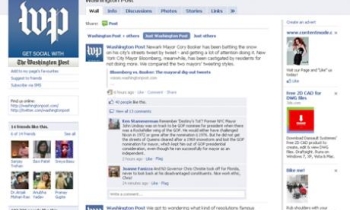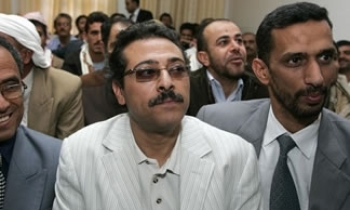The recent disclosure of a secret databank operation by the federal government that tracks terrorist financing has prompted calls to punish reporters and newspapers involved in the disclosure of a confidential anti-terrorist program. The ire comes principally from supporters of President Bush's administration, who believe the press has no business exposing sensitive information when terrorism still poses a threat to the country. They're wrong, but the controversy once again raises delicate questions about the role of the press in a free society, particularly in wartime.
In this instance, claims that the news media are undermining the government's duty to safeguard valuable secrets seem especially suspect. For one thing, most of the criticism has been focused on The New York Times, a favorite whipping boy of conservative critics, even though other newspapers also printed the story. Besides, it was already a matter of record that the administration was using all means at its disposal to track terrorist financing.
No responsible news organization seeks to make the work of terrorists easier. In this particular case, the claim of such assistance is a phony argument. Surely, terrorists could not have been surprised to learn that the government was trying to follow the money by reaping information from wholesale data provided by a worldwide financial consortium known as SWIFT (the Society for Worldwide Interbank Financial Telecommunication).
_Not after President Bush himself announced only days after Sept. 11, 2001, that the government had established a ``foreign asset terrorist tracking center'' and asked for international cooperation to dry up terrorist funding.
_Not after Treasury Secretary Paul O'Neill disclosed a major crackdown on terrorist financial networks on Nov. 7, 2001, called ``Operation Green Quest,'' which targeted organizations suspected of helping terrorists move their money around the world.
_And not after the 9/11 Commission weighed in with a strong recommendation calling for vigorous efforts to track terrorist financing, pointedly adding (Page 382) that international financial institutions had already provided ``law enforcement and intelligence agencies with extraordinary cooperation, particularly in supplying information ...''
More likely, recent press accounts proved an embarrassment to SWIFT and some of its member institutions, who claim to uphold traditional ideas of bank secrecy. But their embarrassment should not become a pretext to call for prosecution of American reporters under the Espionage Act of 1917, as some members of Congress have done. This would classify the publication of information as a crime, in effect creating an Official Secrets Act that could be used as a club to intimidate and/or censor the news media whenever an administration - Republican or Democratic - deemed it useful.
The press has a responsibility to weigh the pros and cons of publishing secret information. But it also has the duty to inform the public about the activities of its government. In upholding the right of publication in the famous Pentagon Papers case 35 years ago last month - another wartime controversy - Supreme Court Justice Hugo Black wrote that ``the newspapers nobly did precisely what the Founders hoped and trusted they would do.'' They, and we, are still doing that.









